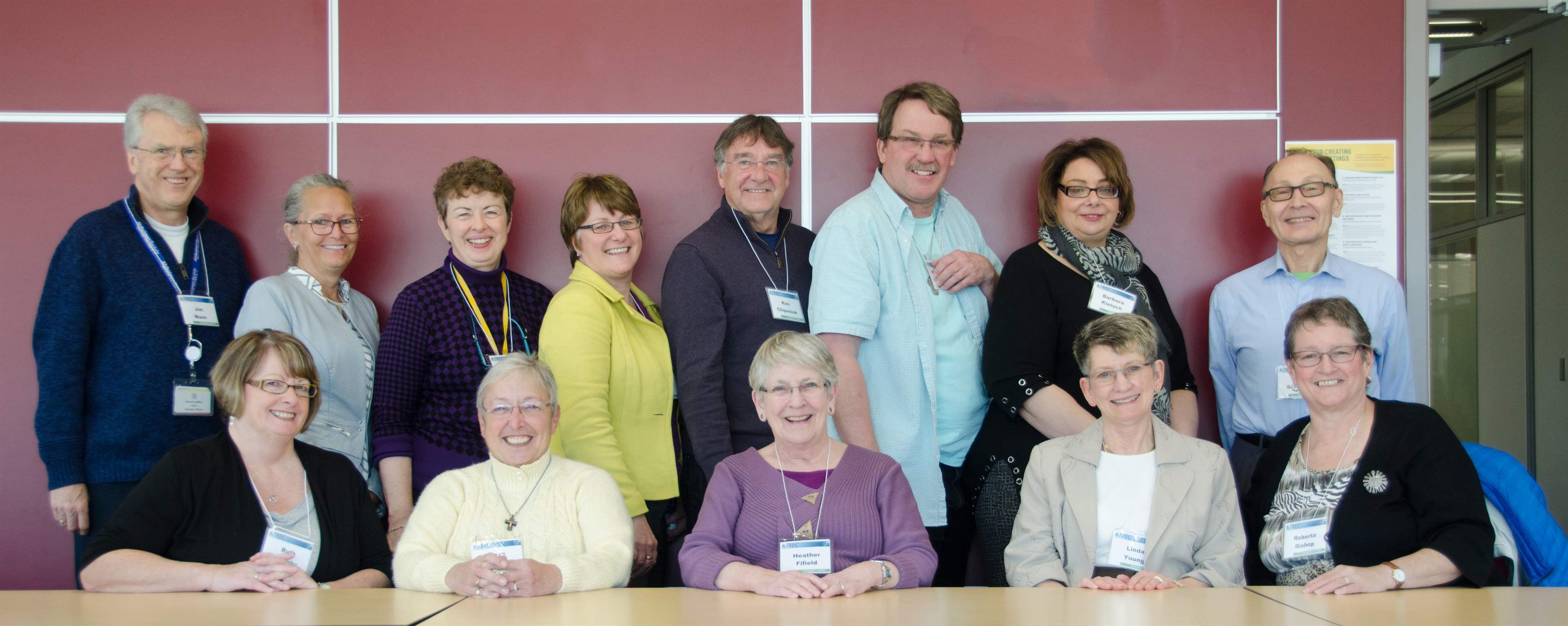Engaging with Citizens to Create Change
TREC's citizen advisory committee gives input and feedback to TREC researchers, shaping the research agenda through new lenses.The VOICES (Voices of Individuals, Family and Friend Care Givers Educating Us) committee is composed of persons living with dementia and family or friend caregivers of residents in long-term care settings.
Voices of Individuals, Family and Friend Care Givers Educating Us
“Engaging with every facet of the long-term care sector is critical to our research,” says TREC researcher Janice Keefe, co-chair of the VOICES committee. “VOICES provides really important insight that we’re often missing—this isn’t a lab; these are real people and these are real families. We’re very proud of this committee and we value their contributions and the different perspectives they bring to the table. It’s like walking in another’s shoes.”
One pair of shoes belongs to VOICES member Faye Forbes. A resident of Nova Scotia, Forbes was diagnosed with dementia seven years ago. Far from slowing her down, the news lit a new spark within her and Forbes has become a tireless advocate for people with dementia. “For me it’s really important to get the word out to people to dispel the stigma, to say that life goes on,” she explains.
The Importance of Citizen Engagement
Engaging patients (or residents in long-term care) and family members in health research is increasingly vital in our society. This is the central principle of Canada’s Strategy for Patient-Oriented Research.

VOICES Committee members, left to right: Jim Mann (co-chair), Phyllis Fehr, Carole Estabrooks, Janice Keefe (co-chair), Ken Chipeniuk, Graham Bond, Barbara Kieloch, Alvin Schrader; front row left to right: Ruth Murphy, Faye Forbes, Heather Fifield, Linda Young, Roberta Bishop
TREC’s research and the VOICES committee were avenues where she felt she could contribute. “TREC’s work is probably not going to affect me but it will benefit those coming behind me. And my perspective is different than that of the researchers and the care givers. It’s important to get all those perspectives together and work collaboratively. I might feel something, see something, understand something differently than they do.”
TREC is leading the way with this advisory structure—Alberta Health Services and the government of Ontario both plan to set up similar advisory groups of seniors and long-term care residents. TREC also hopes to add two more advisory groups, as resources and capacity permit: front line workers and operators of nursing homes.
Page Options


